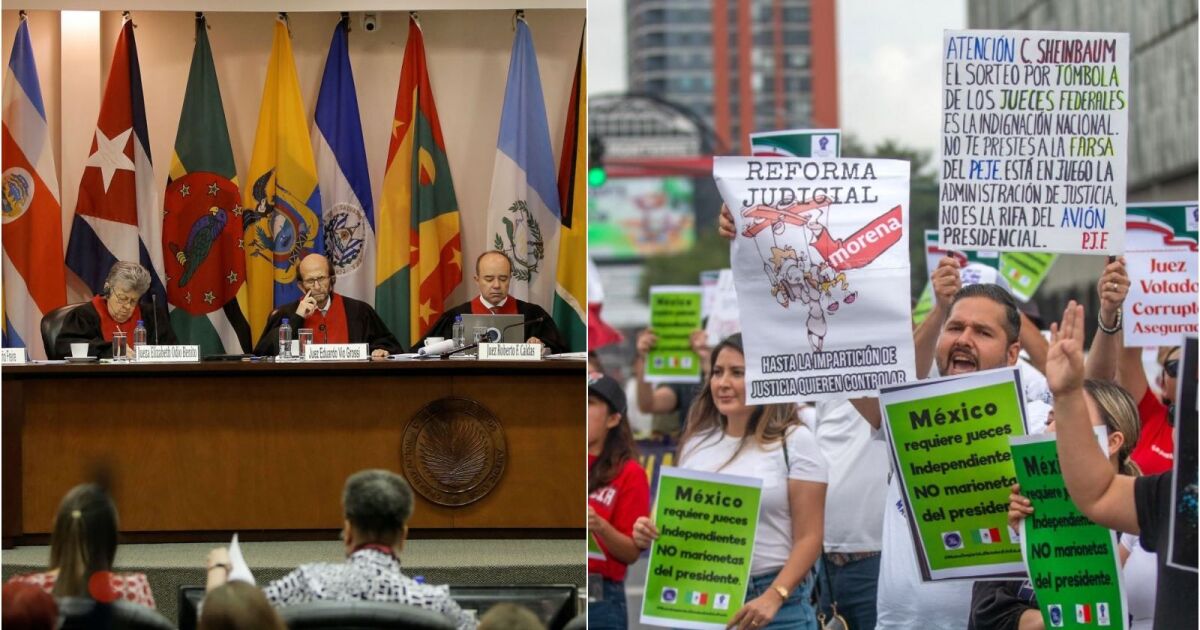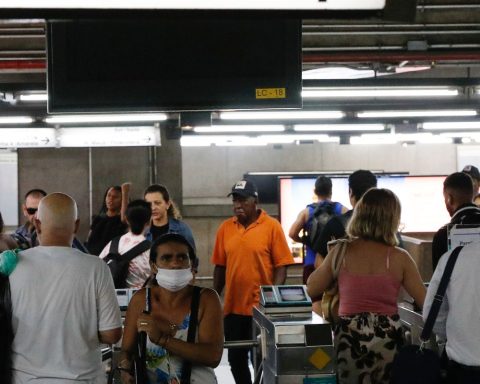Attack on judicial autonomy
Another objective of the promoters is to expose how the reform damages judicial independence at various points: judges are massively removed, judicial immovability is violated and a Judicial Disciplinary Court is established with powers to sanction judges for their jurisdictional criteria. , but without guarantees of due process.
The reform included that the resolutions of that Court – which will at the same time investigate and sanction – are unassailable, so there will be no second instance, and the irregularities to be sanctioned are ambiguous, which, they warn, could lend themselves to persecution.
“Acts or omissions contrary to the law, the public interest or the proper administration of justice will be punished, including those linked to acts of corruption, influence peddling, nepotism, complicity or cover-up of alleged criminals, or when their determinations do not “adhere to the principles of objectivity, impartiality, independence, professionalism or excellence, in addition to the matters determined by law,” indicates the Judicial Reform.
In their initial brief, the magistrates made it clear that the Judicial Reform seeks to “get rid” of practically all judges, which will “throw away” more than thirty years of operation and eliminate all expectations of professionalism and meritocracy.
Furthermore, they accuse that the reform does not respect the duration in office of judges, which is a guarantee of independence that allows them to transcend political contexts, which will make it easier to exert pressure, threats or reprisals against them.
“By weakening these mechanisms, perverse incentives will be generated to wait for rewards for (judicial) decisions. The new judges will become de facto members of the presidency,” they warn.
With all this – according to the judges – the Mexican State would affect the separation of powers and judicial independence that it undertook to respect when adhering to the Convention and the Inter-American Democratic Charter, approved in 2001 by the OAS.
Judge Juana Fuentes, leader of the JUFED, expressed her confidence that the Mexican case will be admitted before the IACHR and a position of the inter-American organization will be issued, as has already happened in other matters.
“There are criteria of the IACHR that leave a clear example that there cannot be mass dismissals of judges,” he said in a forum when explaining why they go to the IACHR.
“In international bodies there are already criteria, it is not something unprecedented either. It has happened in other countries, perhaps not in the way it happens in Mexico, but there are criteria and they are exactly the precedents that we invoke to be able to carry out carry out these actions,” he assured.
A precedent for this occurred in 2021, when the IACHR condemned the dismissal of judges in El Salvador and stated that the principle of the immovability of judges in their positions is fundamental for judicial independence.
“The early removal of a judge from office must be due exclusively to previously established causes, in a process that respects due process and judicial guarantees, and any decision must be duly motivated,” stated the IACHR in that case.
However, for now, the IACHR has only started a hearing and this will not be binding, recalls Checa Gutiérrez.
“Because we are not in a process, that is, the discussion is just beginning, but the statement that the Commission may make to the Mexican State will be relevant and will also know what its position will be before the IACHR,” he points out.
The litigator Raúl Andrade considers that this Tuesday’s hearing will be like a conciliation hearing, because although Mexico is adhered to international conventions on Human Rights, the State has the opportunity to defend the reform.
Andrade, who as legal representative of the Iris Foundation in Defense of Human Rights, and promoter of one of the amparos against the Judicial Reform, will also attend the hearing, said that what is expected is that there will be a glimmer of a solution.
“A conciliation could also occur: not all the judges leave or, in extreme cases, they listen to us and reconsider,” he adds.
What will happen to justice in 2025?
Cristina Reyes, from MUCD, explains that this organization will emphasize the effect of the reform on the justice system and how no element of improvement was introduced, since the prosecutor’s offices were left out.
“This judicial reform will affect access to justice for all citizens because the selection of judges does not address any of the needs of either the victims or the people subject to proceedings,” he stated.
“With the arrival of new judges elected at the polls and with weak evaluations, there is no guarantee that they are the most capable to serve as judges and magistrates. The problems that justice drags are deficient investigations or there is no adequate solution to crimes and many “These deficiencies come from a lack of professionalization of the prosecutor’s offices; lack of political will to have an effective security plan; total abandonment of public defenders’ offices; the commitment to a punitive system and budget deficit in the justice system.”
None of this was included in the reform, alert, nor will it be modified with it, since only a system of electing judges was created.
“We are going to have a Judiciary subordinate to the political power and without a guarantee of judicial independence, which is what citizens need to protect their rights and access to justice.”
Cristina Reyes, from MUCD
Added to all this, Reyes indicates, is that because the constitutional reform was hasty, it was not foreseen what will happen to the open processes and the result will be the defenselessness of the people.
“Now there will be substituted judges and we run the risk that many of these trials have been interrupted or postponed unnecessarily. People awaiting a sentence and probably deprived of their liberty, victims of crime if their Trials are restarted and with this there will be re-victimization,” he adds.
This period of change of members of the Judiciary, it coincides, not only encourages pressure, but also puts witnesses at risk in access to justice.

















